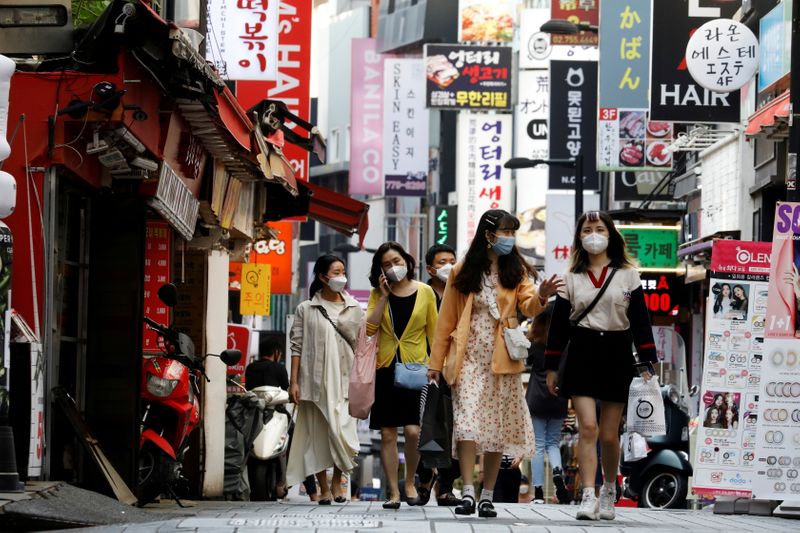By Joori Roh
SEOUL (Reuters) - Consumer inflation in South Korea stayed above 2% in June for the third consecutive month, hovering near a nine-year peak, adding pressure on policymakers to raise interest rates sooner rather than later.
Consumer prices rose 2.4% from the same month a year prior, government data showed on Friday, slightly missing analysts' 2.5% forecast and a tad off May's 2.6% - the fastest growth since April 2012.
The breakdown of data showed the cost of agricultural, livestock and fisheries products rose 10.4% on year, while that of petroleum surged 19.9%.
"As the impact from a low base of comparison persists over the coming months, and as fresh-food prices likely rise ahead of the monsoon season and Chuseok holiday, inflation will continue to stay above 2% for some time," said economist Kim Yeon-jin at Eugene Investment & Securities.
"The government's planned extra budget and cash handouts will likely lift the service sector and boost demand," Kim said.
On Thursday, the government announced a 33 trillion won ($29.08 billion) supplementary budget that included pandemic relief for households.
Many economists now see a base interest rate hike from the current record low of 0.50% as early as the third quarter of 2021, as house prices soar and inflation remains above 2%, even as the impact of last year's low base fades.
South Korea is seen to be Asia's first economy to pull back on pandemic-era monetary stimulus and normalise easy policy.
Bank of Korea (BOK) Governor Lee Ju-yeol said last week the bank will start normalising easy monetary policy by year-end.
"A third-quarter hike is possible if the recent surge in domestic virus cases is quickly contained and the vaccination roll-out regains strong momentum, but as things stand, a move in the fourth-quarter looks more likely," said ANZ economist Krystal Tan.
The BOK next reviews its policy rate at its July 15 meeting.
STOPPED BUYING
Consumer prices soared an average 1.8% during the first half of the year, versus 0.6% a year earlier and approaching the BOK's 2% target.
"I saw snack bars and ready-meal stores using quail eggs instead of just eggs because they got so expensive. Zucchinis and spring onions are also so expensive I stopped buying them," said 26-year-old homemaker Kim Sung-eun.
"Apples have also shot up in price, but I still buy them as drinking squashed apple juice every morning is a daily routine for me and my husband," she said.
"Our living expenses jumped nearly 20% in the first half of this year from last."
Rising input costs due to inflationary pressure is also straining South Korean manufacturers, with the BOK in a report this week saying 49% of 281 firms surveyed were passing higher costs to clients.
Meanwhile, the core consumer price index, which excludes volatile energy and food prices, came at 1.2%, unchanged from May when it rose at the sharpest pace since November 2018.

However, on a month-on-month basis, headline inflation was minus 0.1%, falling into negative territory for the first time in seven months, compared with positive 0.1% in May.
The BOK currently sees inflation at 1.8% for all of 2021 and 1.4% for 2022. It was 0.5% in 2020, just above the record low of 0.4% in 2019.